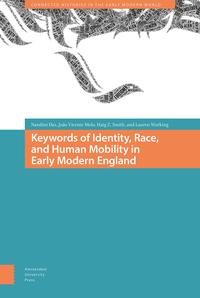About TIDE
The early modern period saw an explosion of global travel and exploration. Across the globe, the interaction of states and empires and the spread of colonialism resulted in the forced displacement of many people and cultures. The exploration of new territories and the opening of trade routes had a major impact on the global economy and the development of scientific knowledge. The movement of people bringing new technologies, ideas, and customs to different parts of the world had a profound impact on the development of art, literature, and other forms of cultural expression.
TIDE (Travel, Transculturality, and Identity in the Early Modern World) promotes and supports scholarship on global transculturality, mobility, and cultural encounters, and on questions of race, belonging, and identity in the sixteenth and seventeenth centuries. It is a forum to bring together Oxford-based researchers from all disciplines and at all stages, as well as visiting scholars, academic and non-academic collaborators, to engage in new conversations about human movement – both voluntary and enforced – that took place across geographical, political, linguistic, religious, and cultural boundaries throughout this period across the globe, with complex and long-lasting implications that have shaped the world we live in today.
Contact
We welcome researchers who would like to be more actively involved in the TIDE team. Eligibility includes doctoral or postdoctoral research specialization in a relevant field and a commitment to engaging with and contributing to TIDE initiatives. Please contact us by email at freya.abbas@merton.ox.ac.uk or emily.stevenson@ell.ox.ac.uk.
We particularly encourage researchers from underrepresented backgrounds.
ERC-TIDE (2016-22)

TIDE emerges from ERC-TIDE (Travel, Transculturality, and Identity in England, c.1550-1700), a 6-year European Research Council funded project (2016-2022) that investigated how mobility in the great age of travel and discovery shaped English perceptions of human identity based on cultural identification and difference. The role of those marked by transcultural mobility was central to this period. Trade, diplomacy and politics, religious schisms, shifts in legal systems, all attempted to control and formalise the identity of such figures. Our current world is all too familiar with the concepts that surfaced or evolved as a result: foreigners, strangers, aliens, converts, exiles, or even translators, ambassadors and go-betweens. By examining how different discourses tackled the fraught question of human identity in this era, ERC-TIDE opened a new perspective on cross-cultural encounters, putting pressure on our understanding of cultural difference, transculturality and identity, and generating a new understanding of key terms, concepts, and debates. It produced new knowledge about the unique role played by literature, and illuminated how some of our key concepts of cultural difference and identity took shape. The project helped to consolidate our fragmented understanding of transculturality and the idea of ‘betweenness’ in the early modern period, which continues to have a significant impact on the contemporary world. You can read more about this work on the ERC-TIDE website.
The project’s two major open-access outputs, Keywords of Identity, Race, and Human Mobility, and Lives in Transit in Early Modern England, are also available online. The first volume, Keywords, analyses a selection of terms that were central to the conceptualisation of identity, race, migration, and transculturality in the early modern period. The primary aim of this collection of short essays is to examine certain terms which repeatedly illuminated points of tension, debate, and change around these issues in this period, and the words chosen featured centrally in English debates about migration and empire.


The second volume, Lives in Transit, is a collection of 24 microhistories that explore the lives of transcultural figures in the period, and the ways in which border-crossers of all kinds negotiated a place for themselves in a new language, country, or culture and navigated the often exclusionary parameters of belonging. They also reflect on our own methods of knowledge production, particularly in places where archival presence is limited or heavily mediated.
As well as these collaborative outputs, a full list of publications from the ERC-TIDE team can be found here.
TIDE has a wider remit than ERC-TIDE, building on the latter’s understanding of the complex global networks of movement in this period. We welcome new members of the TIDE community, and if you would like to learn more, please visit the ‘Projects’ and ‘Join’ pages.


